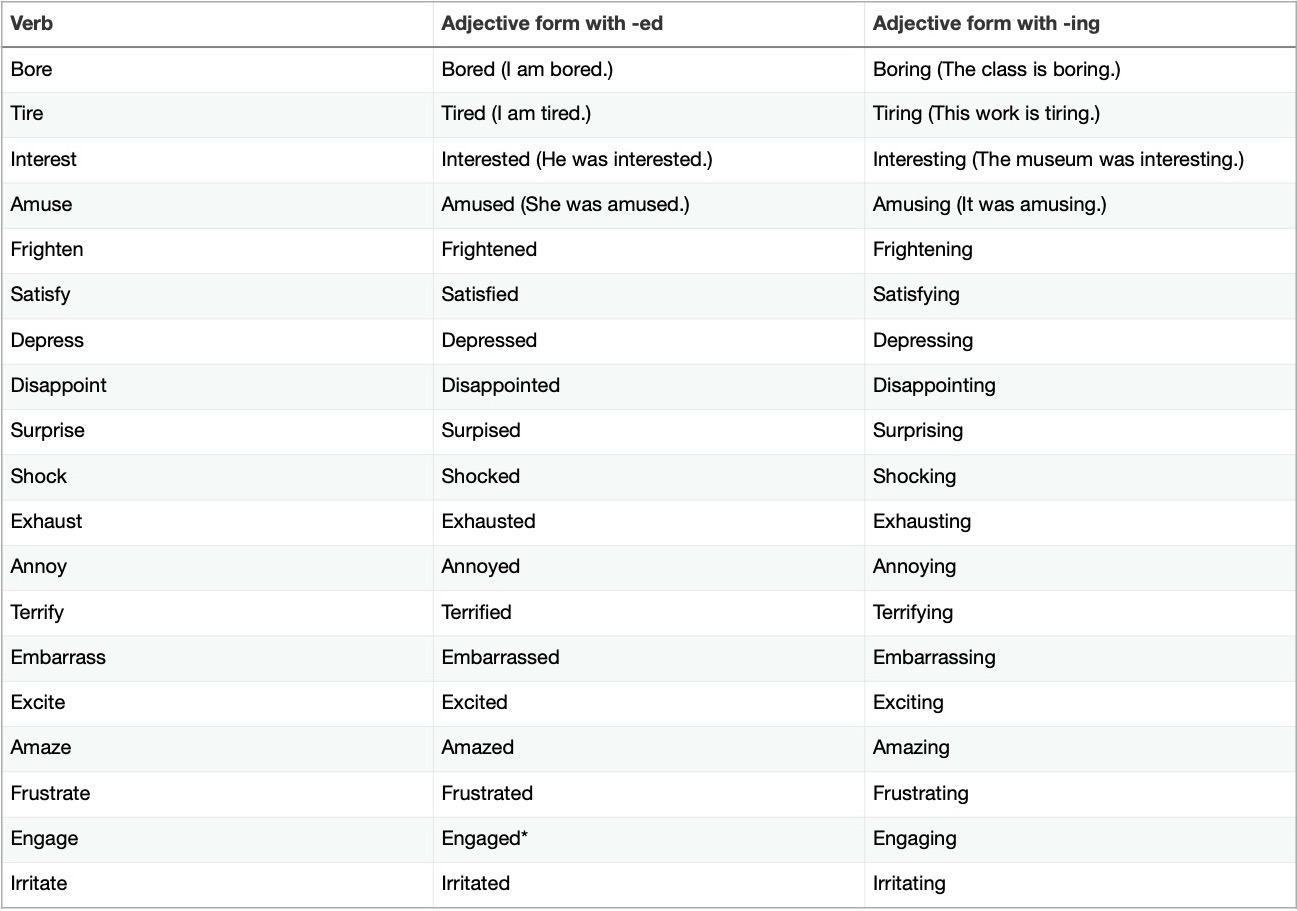Intermediate Grammar Project
PARTICIPLE ADJECTIVES
What is participle adjectives?
Some participles can be used as adjectives.
To express how someone feels, the past participle is usually used, BUT to refer to the person, thing or situation that causes that feeling, the present participle is used.
Past participle verbs ending in -ed
Present participle verbs ending in -ing
Some examples:
Past participle: confused, exhausted,
tired
Present
participle: confusing, exhausting, tiring
Below, you can see a list with more examples:
SENTENCES
- Physical education class is tiring. I want it to be over quickly!
- I'm too tired to go for the physical education class.
- Having a week's worth of work piled up is frustrating.
- He is frustrated because he has work pending.
REFERENCES
Kawasaki, J. (2021, 3 febrero). How to teach participial Adjectives to ESL Students. BridgeUniverse - TEFL Blog, News, Tips & Resources. https://bridge.edu/tefl/blog/teach-participial-adjectives/

Comments
Post a Comment